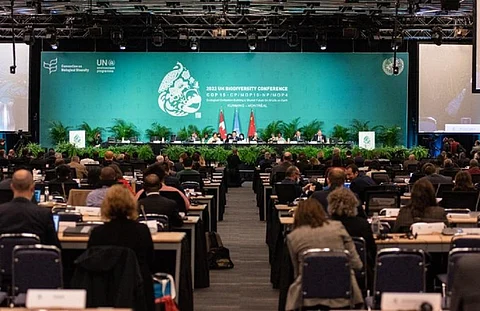

Over the last nine days, despite intense negotiations, very little progress has been made at the UN Biodiversity Conference in Montreal, Canada. The baton has now been passed to ministers from the member countries.
Members of the Convention on Biological Diversity have gathered together for the 15th conference (COP15) to finalise the ambitious Post-2020 Global Biodiversity Framework (GBF), which would ensure that the three objectives of the convention are achieved by 2030.
With just a few days remaining before the end of COP15, there are high expectations from the High-Level Segment.
The ministers are supposed to support the final stages of the negotiations on the Post-2020 GBF and related decisions with a view to ensuring a successful outcome of the conference, including the adoption of an effective GBF.
At the inauguration of the meeting, United Nations General Assembly President Csaba Kőrösi said:
We are not here at COP15 to save the Earth. We are here to save ourselves, our sons and daughters, and many generations to come.
The discussions at the High-Level Segment began with comments on how implementation of the Post-2020 GBF would be supported. In this the role of UN organisations and Global Environment Fund was discussed.
Inger Andersen, executive-director of the UN Environment Programme, said some 50 organisations within UN will take care of the five drivers of the potential apocalypse: fragmentation of land, over exploitation, pollution, climate change and invasive species.
This was followed by a discussion on how different conventions should collaborate to achieve the ambitions of the Post-2020 GBF and how international organisations need to mobilise the world to deliver on the framework.
Over 130 ministers and high-level officials are expected to speak over the three days. An additional few have sent recorded messages. Organisations working on biodiversity would also get a chance to put their views on the table.
In a note, COP15 President Huang Runqui provided an update on the progress at the meeting. He mentioned that the working groups have resulted in 23 decisions being adopted and another 8 agreed upon. However, the note also indicated that decisions on crucial issues such as GBF, resource mobilisation and digital sequence information still remain.
The president has set down three teams of ministers to resolve these issues. These ministers will meet informally and try to come to a consensus.